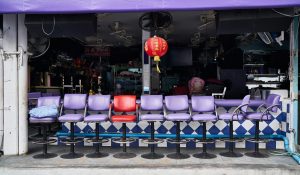Post-Globalization Retail: How Politics Reshapes Cross-Border Commerce
In today’s globalized world, the economy and politics are deeply intertwined. As cross-border commerce continues to expand, it is increasingly influenced by the shifting policies and alliances of governments. This has a significant impact on the retail industry, as businesses are forced to navigate complex political landscapes that can greatly impact their operations and bottom line. This article will explore the concept of post-globalization retail and how politics is reshaping cross-border commerce.
The Rise of Post-Globalization Retail
The term “post-globalization retail” refers to the current state of the retail industry, in which the traditional concept of globalization has been challenged by political and economic factors. While globalization was once seen as an unstoppable force that would lead to ever-expanding international trade and interconnectedness, recent years have seen a pushback against this trend.
Factors such as the rise of nationalism, protectionist policies, and trade wars have created an environment where businesses must navigate a constantly changing landscape of regulations and trade agreements. As a result, the once-guaranteed benefits of cross-border commerce are no longer a given, and companies must take a strategic approach to thrive in this new era of post-globalization retail.
The Impact of Politics on Cross-Border Commerce
Politics has always played a role in international trade and commerce. However, the influence of politics on cross-border commerce has intensified in recent years. With the increasing use of tariffs, sanctions, and other economic measures as tools for governments to advance their agendas, businesses are facing a complex web of regulations and restrictions that can greatly impact their operations.
Tariffs and Protectionist Policies
In the past few years, we have seen a rise in protectionist policies that prioritize domestic businesses and industries over international trade. The most prominent example of this is the ongoing trade war between the United States and China. As tensions continue to escalate, both countries have implemented tariffs on each other’s goods, making it more expensive for companies to conduct cross-border business.
Sanctions and Trade Restrictions
Another way politics is impacting cross-border commerce is through the use of sanctions and trade restrictions. These measures, often used as a form of punishment or to advance a country’s political agenda, can limit the flow of goods, services, and investments between nations. This makes it more challenging for businesses to operate globally and can result in significant financial losses.
Navigating the Political Landscape
In this new era of post-globalization retail, businesses cannot afford to be passive in their approach to cross-border commerce. Companies must take a proactive and strategic approach to navigate the complex political landscape and mitigate potential risks. Here are some key considerations for businesses to keep in mind when conducting cross-border trade.
Diversify Supply Chains
As protectionist measures and trade restrictions become more prevalent, companies must shift their supply chains to reduce their dependence on a single country or region. By diversifying their suppliers, businesses can mitigate the impact of tariffs or political instability and continue their operations more smoothly.
Stay Informed and Adapt Quickly
With the ever-changing political climate, businesses must stay informed about current events and any potential changes to regulations or policies that could impact their operations. It is also essential to adapt quickly and have contingency plans in place to address any challenges that may arise.
Build Strong Relationships
One of the most effective ways for businesses to navigate the political landscape is by building strong relationships with key stakeholders. This includes government officials, industry associations, and business partners in different countries. By building these relationships, companies can gain insight into potential changes and have a better understanding of the political environment.
Conclusion
As politics continue to shape cross-border commerce, businesses must adapt to thrive in this new era of post-globalization retail. By staying informed, diversifying supply chains, and building strong relationships, companies can navigate the complex political landscape and minimize the impact of ever-changing policies and regulations. Only by taking a strategic and proactive approach can businesses succeed in this increasingly politicized global economy.











